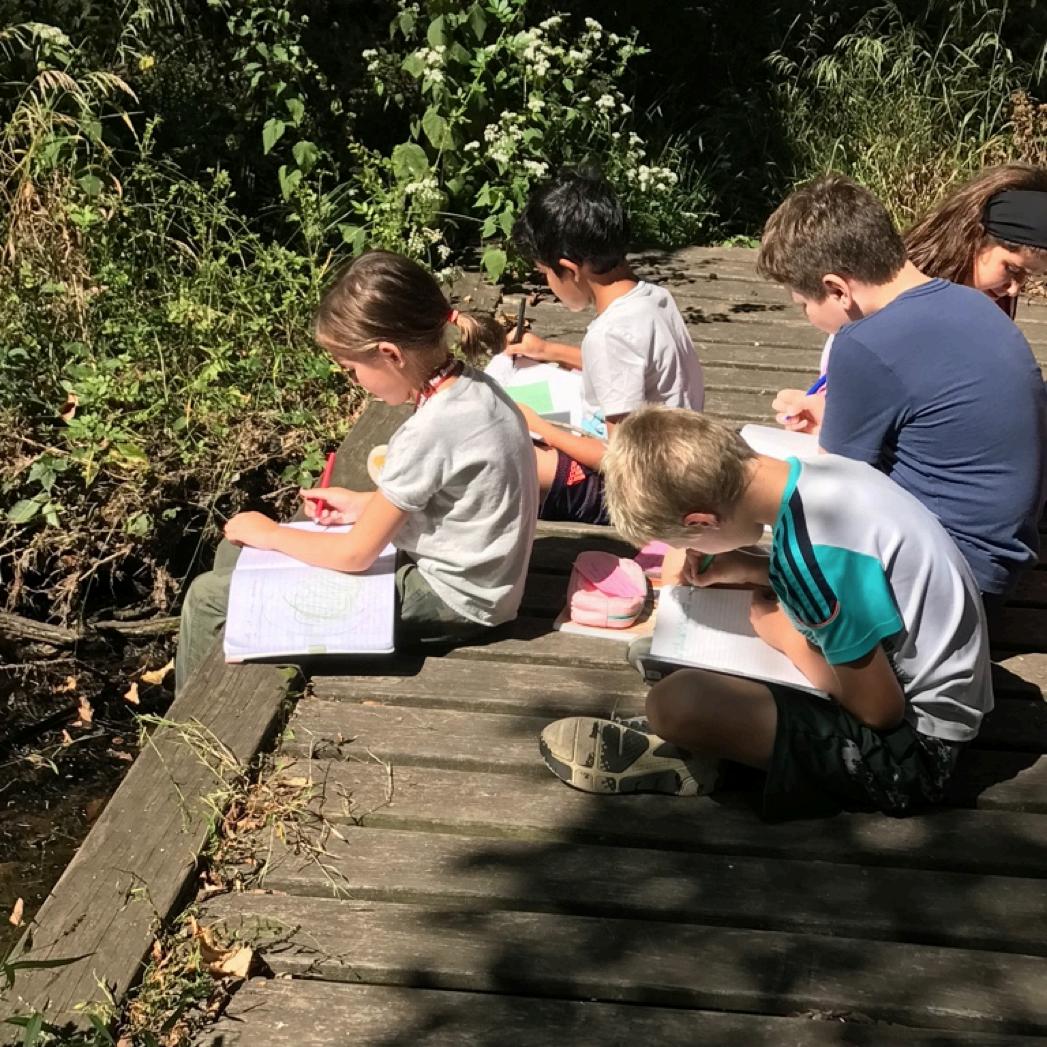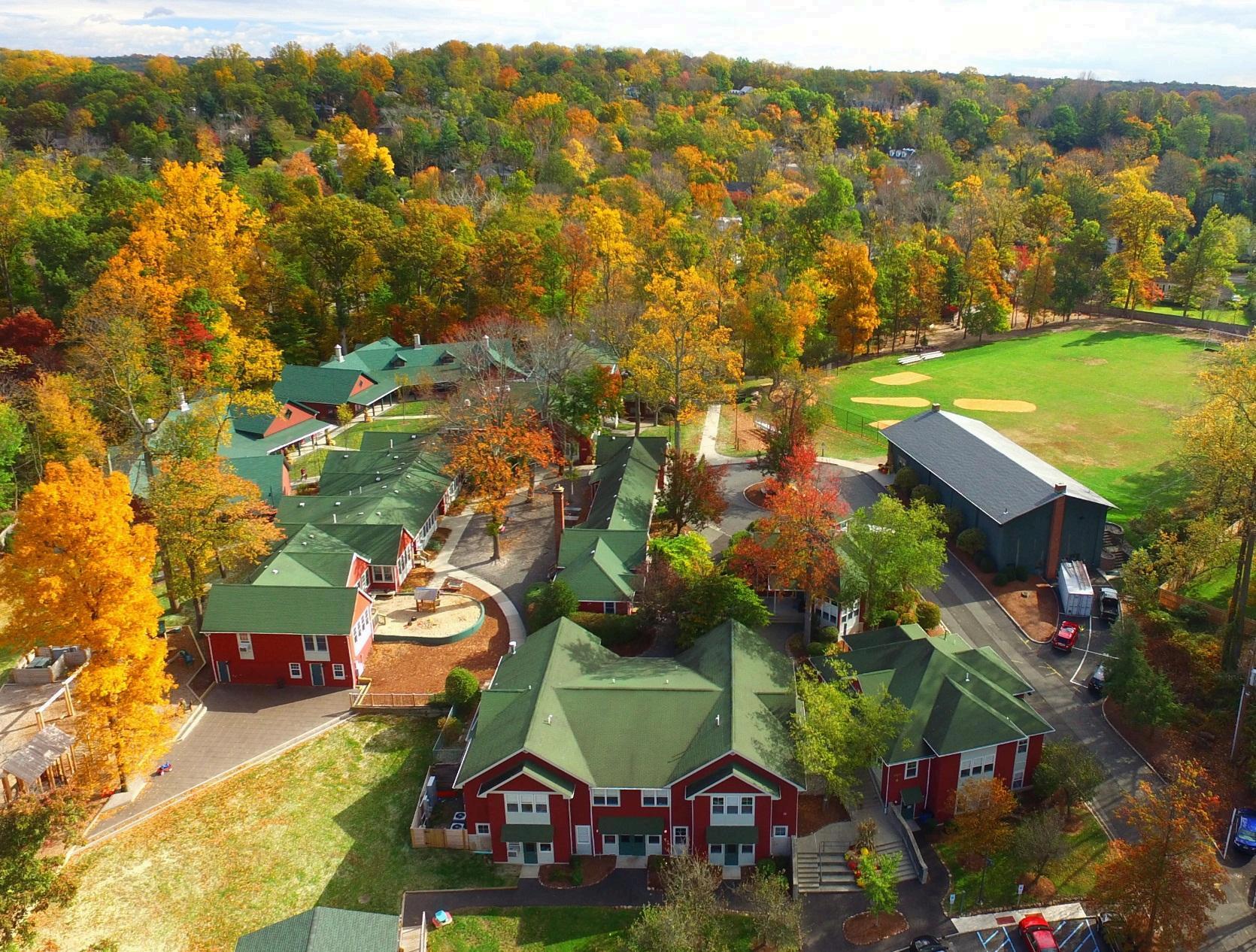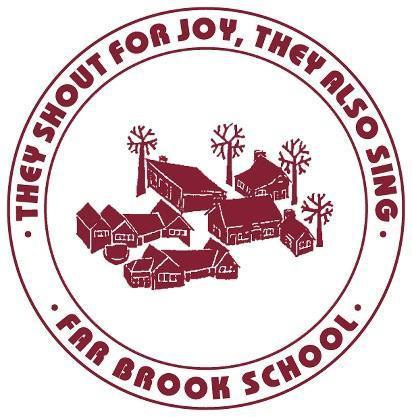




In Fourth Grade, students explore the essential question, “What makes a journey?” The journey begins with a study of world geography. While reviewing the continents and oceans, students learn how geography plays a key role in shaping our ancestors’ migration patterns. In particular, students examine how the geography and climate of the Nile River allowed the civilization of Ancient Egypt to flourish. Included in the exploration of geography is Fourth Grade’s racial literacy curriculum, which looks at how location, climate, and the availability of natural resources gave some populations a head start, dispelling the myth of racial superiority. This study of geography prepares students for their Middle School years when they will revisit, in each subsequent year, the importance of geography in the formation and survival of civilizations.
As the year progresses, students examine another question, “What kind of journey did ancient Egyptians take, both in their daily life and in their beliefs about the gods and afterlife?” Throughout the year, students will come to understand how an innovative civilization advanced Egypt’s practice of art, writing (hieroglyphics), governance, and religion. This integrated curriculum offers various hands-on experiences, such as building models of pyramids and artifacts, mummifying a piece of fruit, and performing their first drama production, which is an adaptation of an Egyptian myth. Students also explore what it means to go on their own personal journey through Fourth Grade and begin to appreciate both physical and metaphorical journeys, both their own and those of characters they read about in books. Students ask: “What are the journeys of the characters in the novels we read?” “How are they similar and different from my own journey?” “What can I learn about those who are like me and those who are different?”
Archaeology, the study of past humans through artifacts is a way to better understand past humans, their experiences, and their cultures. Students will learn about archaeology as a field, archaeological field methods like excavation and surveys, and what artifacts can tell us about the people that made and/or used them.
Fourth Graders also consider the human journey: “What do humans need to survive and thrive?” This involves consideration of 19th and 20th century mass immigrations to America, specifically, what drove people to leave their homes and find a new one. Emphasis will be placed on the human experience and the conditions every human needs on his or her individual journey
Reading: Fourth Grade students continue to develop their inference skills while reading. They practice strategies to become more active readers, such as stopping to question themselves about what they have read, and write ideas about their books in their journals while they are actively reading. Students learn essential reading skills as they apply to both fiction and nonfiction texts. Reading skills are taught through full-class instruction, as well as individual coaching with a teacher. Students learn to express ideas about reading in their Reader’s Notebook, supporting their ideas with textual evidence. Through partnerships, book clubs, and class read-alouds, students share their thoughts and practice literal
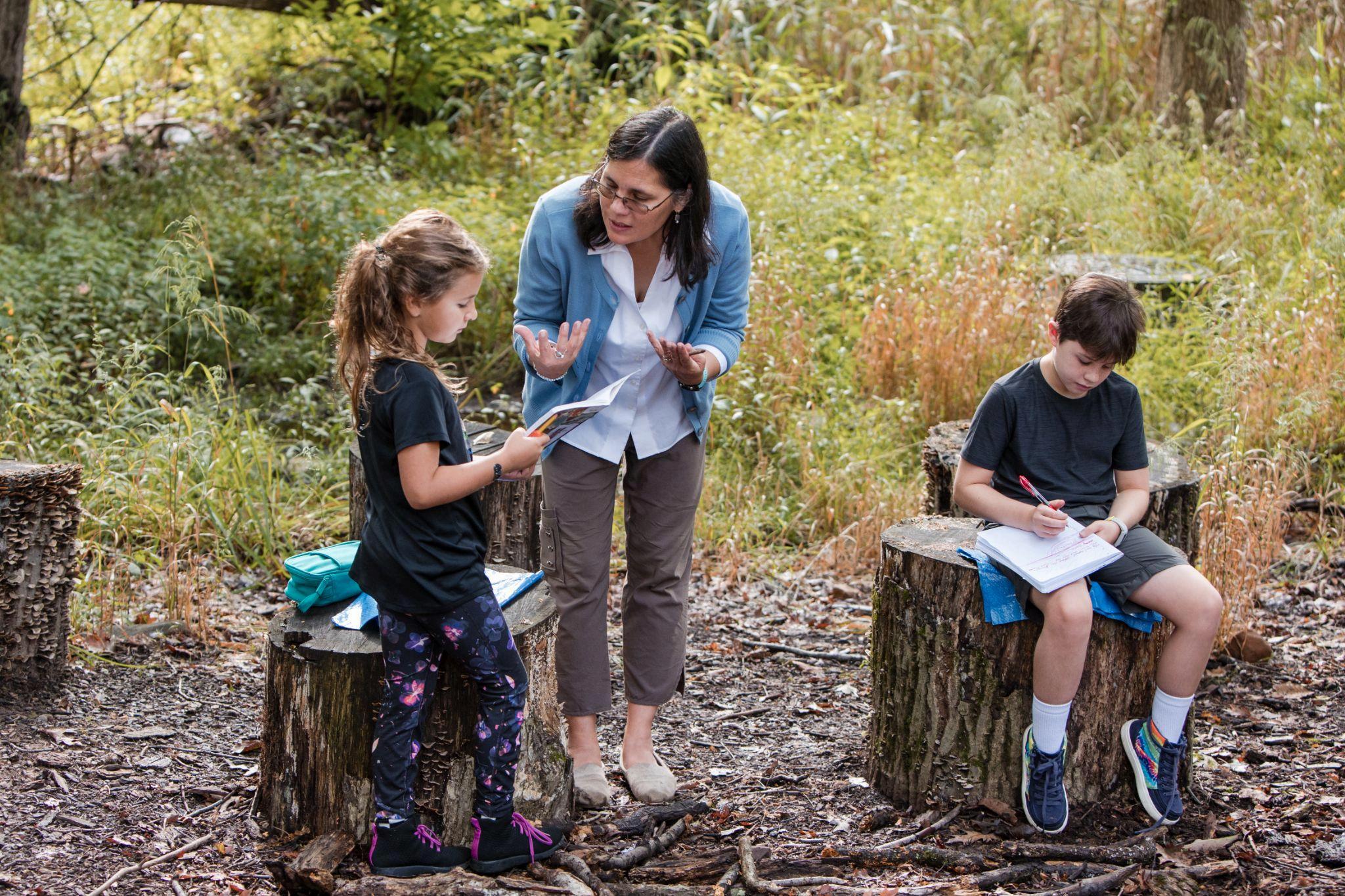
Writing: Fourth Grade writing is taught using a workshop approach, during which time students are taught as a group before practicing the writing skills individually. Students receive small group or
one-on-one coaching specific to the genre being studied. Fourth Graders study the attributes of strong writing in each of the genres they study and then work to master these skills in their own writing. Fourth Graders specifically focus on how to elaborate and expand their ideas. Drafting and editing of written work is done through word processing. Students also study how to punctuate sentences and to express their ideas in paragraphs. Spelling, vocabulary, and grammar skills are reinforced through lessons from Wilson’s Just Words program. Cursive handwriting and keyboarding skills continue to be refined and utilized. Fourth Grade writing includes narrative writing, information writing, and opinion writing. Units of study include persuasive essay, a biography report, personal essay, interviewing, and poetry. ommunication, tinue to evolve in Emphasis is placed on sound computation tions of addition, division. Hands-on and enrich tion. includes division, number omputation of decimals, angle perimeter, and thods and While accurate Grade math also ability to show guidance of the math engage in further explore and
Text: Bridges in Mathematics

Keeping with the Fourth Grade core curriculum study of Ancient Egypt and what makes a journey, the Fourth Grade science curriculum involves a close look at migrations and migratory species, physical and chemical changes, rivers, soil, and electricity. The Fourth Grade Science course, “Motion and Change,” is taught through experiments, individual and collaborative research projects, model-building, and design-thinking. Science practices, including making a prediction/hypothesis, designing and performing experiments, recording data, analyzing data, and drawing conclusions from data are used throughout all scientific activities and experiments. Students also continue to hone their skills in making close observations, producing detailed scientific illustrations, working collaboratively, and communicating their findings with peers.
Health and Wellness: Students begin a formal exploration of health and wellness topics as an extension of their science classes. Through class discussions, questions, activities, and written reflections, Fourth Graders will consider a variety of
topics such as the importance of sleep, strategies in decision making and stress management, learning about balanced choices in food and nutrition, an introduction to pre adolescent changes, illness prevention, and more. Time is allotted for topics of student interest in a safe and supportive environment where questions are encouraged.
The language program at the Fourth and Fifth Grade level allows each student to experience one semester of French and one semester of Spanish during the school year
French and Spanish: In the Fourth Grade French and Spanish classes, students acquire phrases related to family, pets, colors, sizes, and their personal likes and dislikes. The students start with simple conversations including greetings, personal descriptions, and using question words. Fourth Graders further develop their listening comprehension, speaking, reading, and writing skills through storytelling techniques, personalized conversations, songs, and communicative games. Students acquire a foundation of high-frequency words and useful language structures that they will continue to build upon as they move through the Middle School French or Spanish curriculum.
Recorder: For part of the year, Fourth Grade students meet in small groups for Recorder Mini, a practical application of music theory concepts. Students explore more chromatic Middle Eastern melodies based on modal scales, maqams, and in mixed meters. Their repertoire is rich and diverse, reflecting the
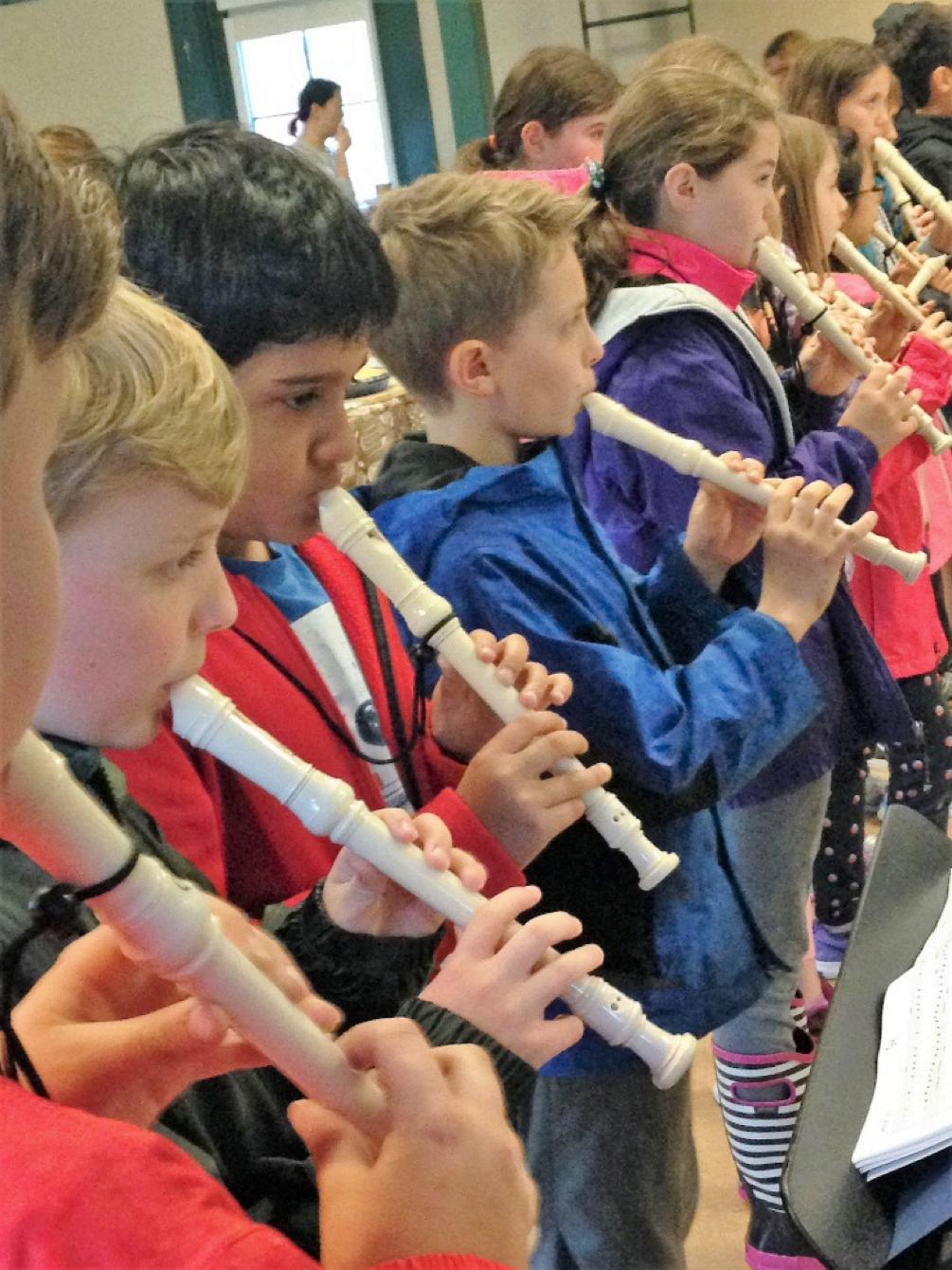
journey the students are taking to Ancient Egypt in their social studies core curriculum.
tone is an important goal throughout their choral life at Far Brook.
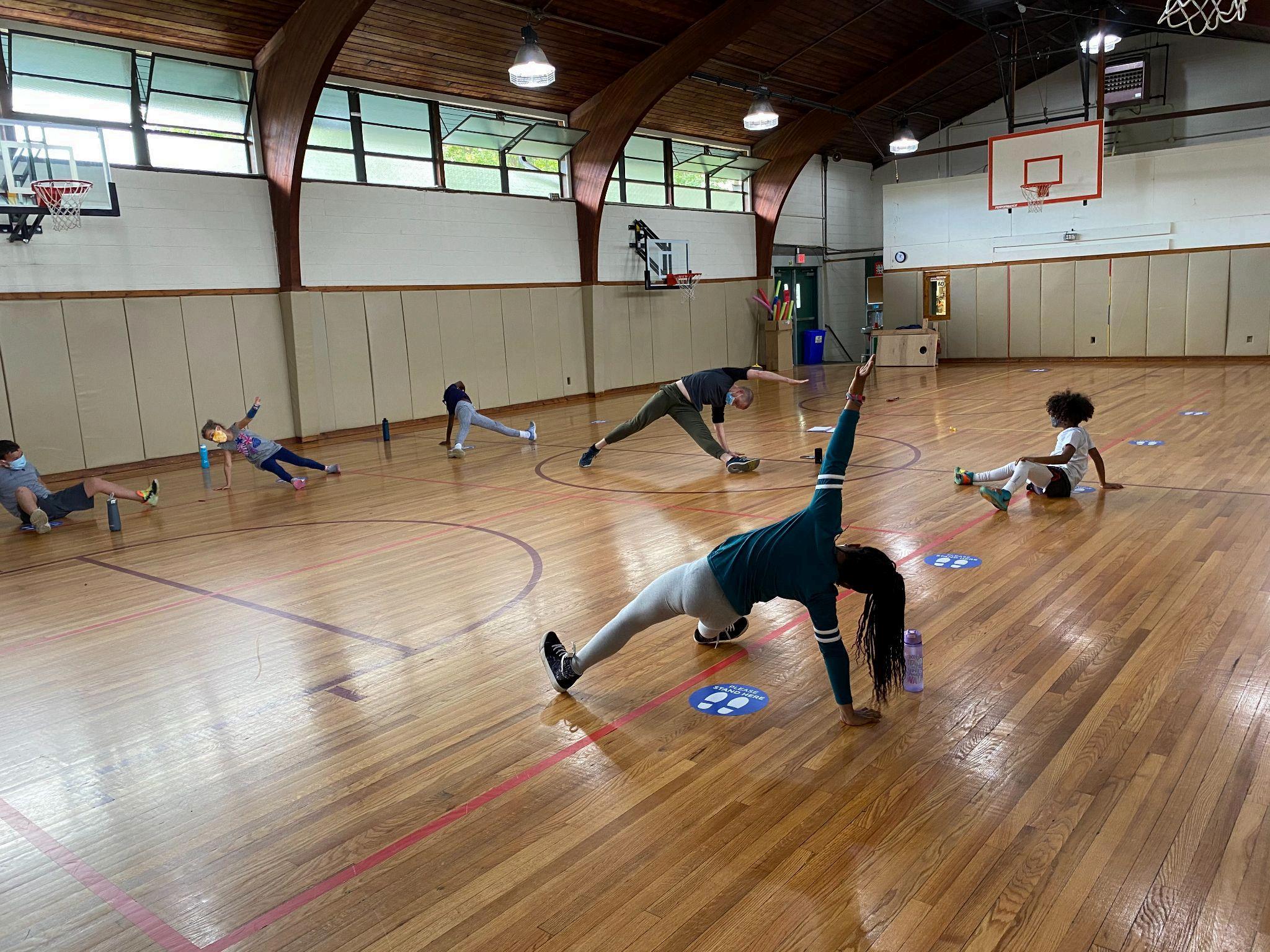
Dance Choreography: The Dance choreography workshop builds on the skills and creative experiences the students have in Dance during their previous years. Students take inspiration both from their classroom learning and from instruction in dance to create their own movement, expression, and choreography in small groups.
Music Theory and Choir: All students in the Fourth and Fifth Grades participate in the Far Brook Choir. Choir provides an opportunity to merge note-reading skills with the voice, study sight-singing, theory, and vocal tone development, begin choral part-singing, and track words and notes on the musical score while following a conductor. Students work on music for the Thanksgiving Processional in the fall semester, studying repertoire that focuses on the harvest, which they perform with the more advanced ensemble, Group. The Spring Concert provides an opportunity for the Choir to sing alone, without the assistance of the older students, in a formal concert setting exploring themed-repertoire. Learning about their unique instruments - their voices - and how to produce and support a beautiful singing
Junior Strings Orchestra: Students in Grades 1-4 are invited to join the Far Brook Junior Strings Orchestra once they reach a certain level of proficiency in their musical skills with violin or cello. The Orchestra plays in Morning Meeting. Many students who participate in Orchestra also perform in the annual Recital Night in the spring and progress to the more advanced Orchestra for Grades 4-8 which incorporates more students, a wider range of instruments, and more challenging repertoire.
Orchestra: Students in Grades 4-8 join the Far Brook Orchestra once they reach a certain level of proficiency in their musical skills. The Orchestra plays in Morning Meeting and at the Spring Music Concert. Many students who participate in Orchestra also perform in the annual Recital Night in the spring.
Drama: The Fourth Grade shares two presentations with the school community, one a presentation of poetry drawn from the works of authors such as Shel Silverstein, Maya Angelou, Langston Hughes, e.e. cummings, and Robert Frost. This presentation
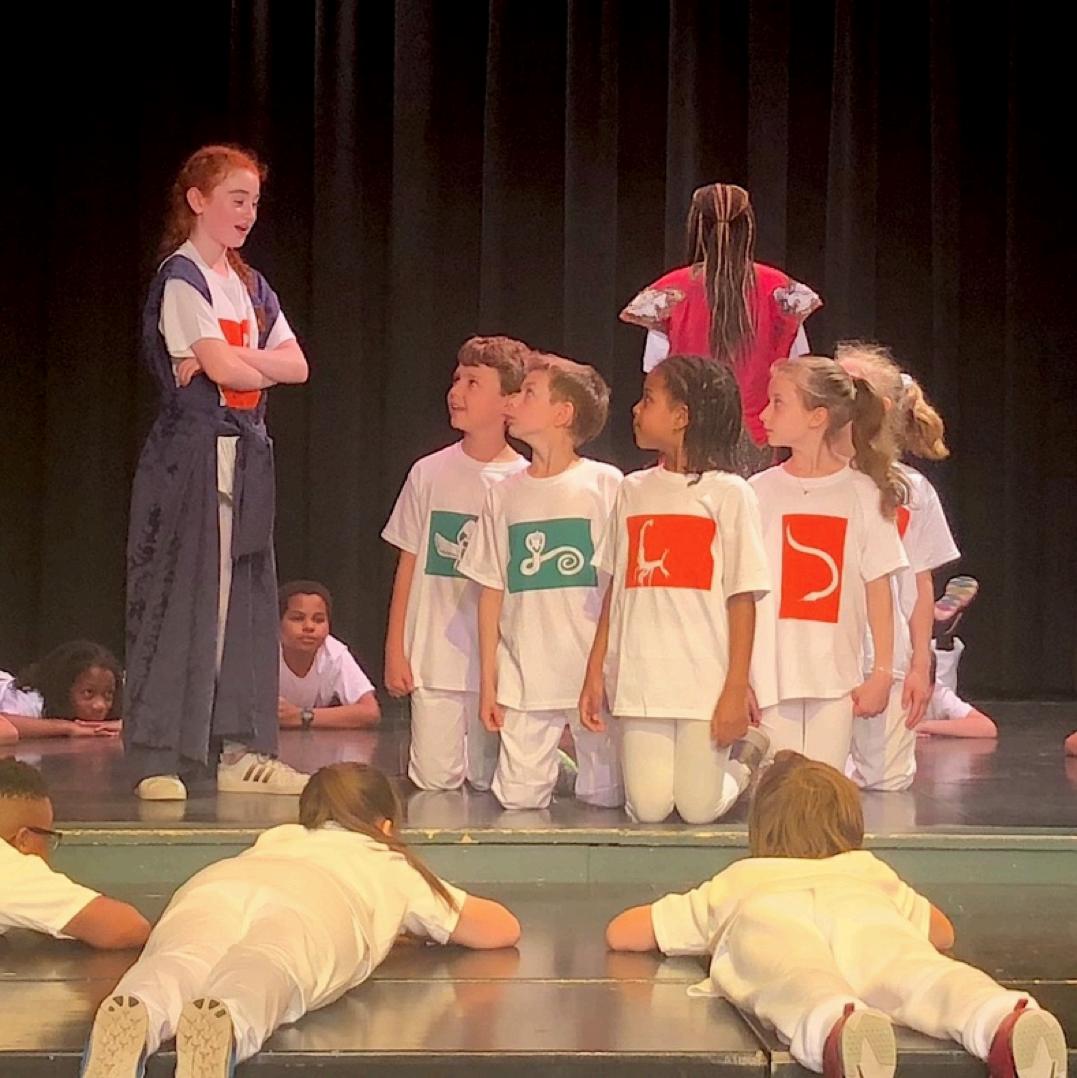
acts as a bridge to the second: a play presented later in the year, adapted from their books of legends or myths of Ancient Egypt. In Drama, Fourth Graders learn to work together in ensemble and learn to breathe, move, and speak together to tell a story to their audience. Their class play is an ensemble-based choral work, interwoven with solos, duets, and smaller groups.
Art: Inspired by the works of Modernist painter, Georgia O'Keeffe, Fourth Grade explores the natural world around them by looking closely and imaginatively, as artists do. Starting in pencil and watercolor paint, students develop their eye for detail and balance, while at the same time developing their use and handling of the media itself. Students are encouraged to push their ideas around composition and perspective beyond the ordinary. Upon mastering works on paper, students expand their artistic visions onto silk fabric. In our final module, students develop the basic techniques of the resist method of silk painting. From blending and mixing colors, to applying detailed resist lines to raw habotai, students create
the students produce a presentation to share their work with the class
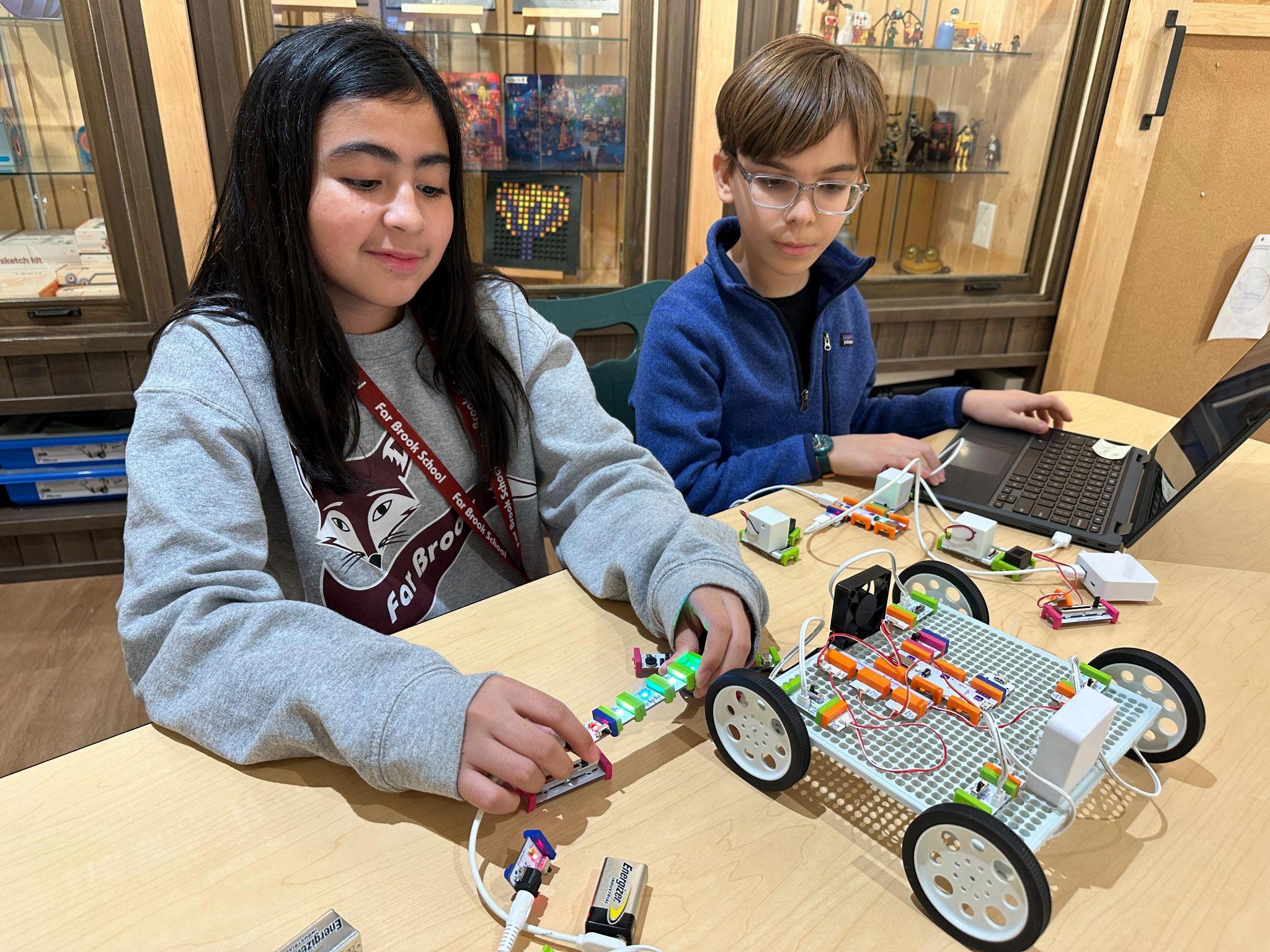
The Fourth Grade Technology class, which meets weekly throughout the year, begins with students engaging in thoughtful, digital citizenship activities and discussions about the impacts that their media choices have on themselves and others. Next, students learn to use Google Suite for Education to produce and organize their work. Throughout the ourth Graders practice their keyboarding Typing.com, an online platform that yboarding through a comprehensive lessons and supplementary typing games. have Typing.com accounts at Far Brook 3rd grade.) Following their robotics work ade, where they coded Ozobots using on paper, Fourth Graders program these using a visual, block-based (screen-based) tem. Towards the end of the year, work in small groups on a game design using Bloxels, a pixel-art platform that users to create complex video games. These e designed to tie in with subject e that students have gained in other, subjects.
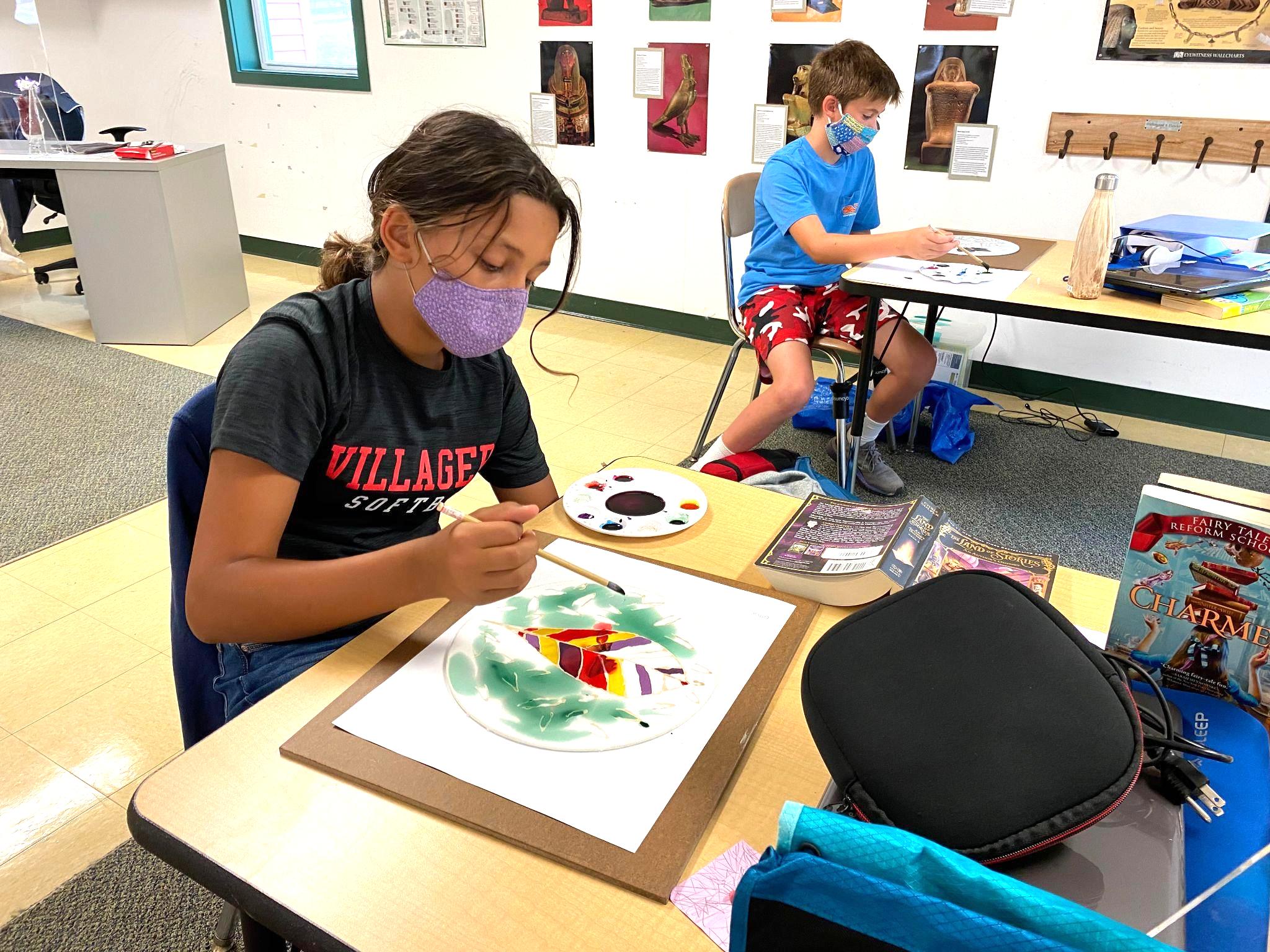
and problem solving. Students identify, and define, real world problems then design solutions to help solve them. These can be 3D printed, crafted from wood, or other materials. At the end of the class,
The Fourth Grade Sports program includes a combination of cooperative team-building activities, fitness and strength training, and continued development in team sports. Students
are introduced to the rules and regulations of various team sports, practice the basic skills and strategies, and compete with and against each other. They learn about the communication, effort, and leadership necessary to be a good teammate and a productive player. They have several sport specific units throughout the year such as soccer, hockey, basketball and softball/baseball, and play pickleball, flag football, volleyball, team handball, ultimate frisbee, and other games. The cornerstone of the sports curriculum is character development, which is manifested through sportsmanship, positive leadership, and perseverance. Participation in sports at Far Brook is highly valued, and every student is encouraged to try new things, compete, and put forth their best effort.
The Middle School years are exciting times as students move into the early stages of adolescence and take on increasing levels of responsibility for their learning and for their roles in Far Brook life. As the ability of the students to think abstractly and analytically, and with more critical discernment increases, teachers work to utilize and stretch these developing skills by challenging students to work in greater depth and scope.
Classroom Meetings: Fourth Graders have weekly class meetings to participate in discussions that help them assess their progress as a class community During these meetings the teachers, school counselor or Director of Diversity, Equity, and Community lead lessons on topics such as establishing and respecting community expectations, cooperating and compromising, problem-solving, when to tell a responsible adult and when to handle situations yourself, recognizing and accepting differences among people, mindfulness, positive self-talk, and more. The goals of these lessons and meetings are to create a cooperative classroom environment and to give students the skills they need to solve interpersonal problems and to build positive relationships.
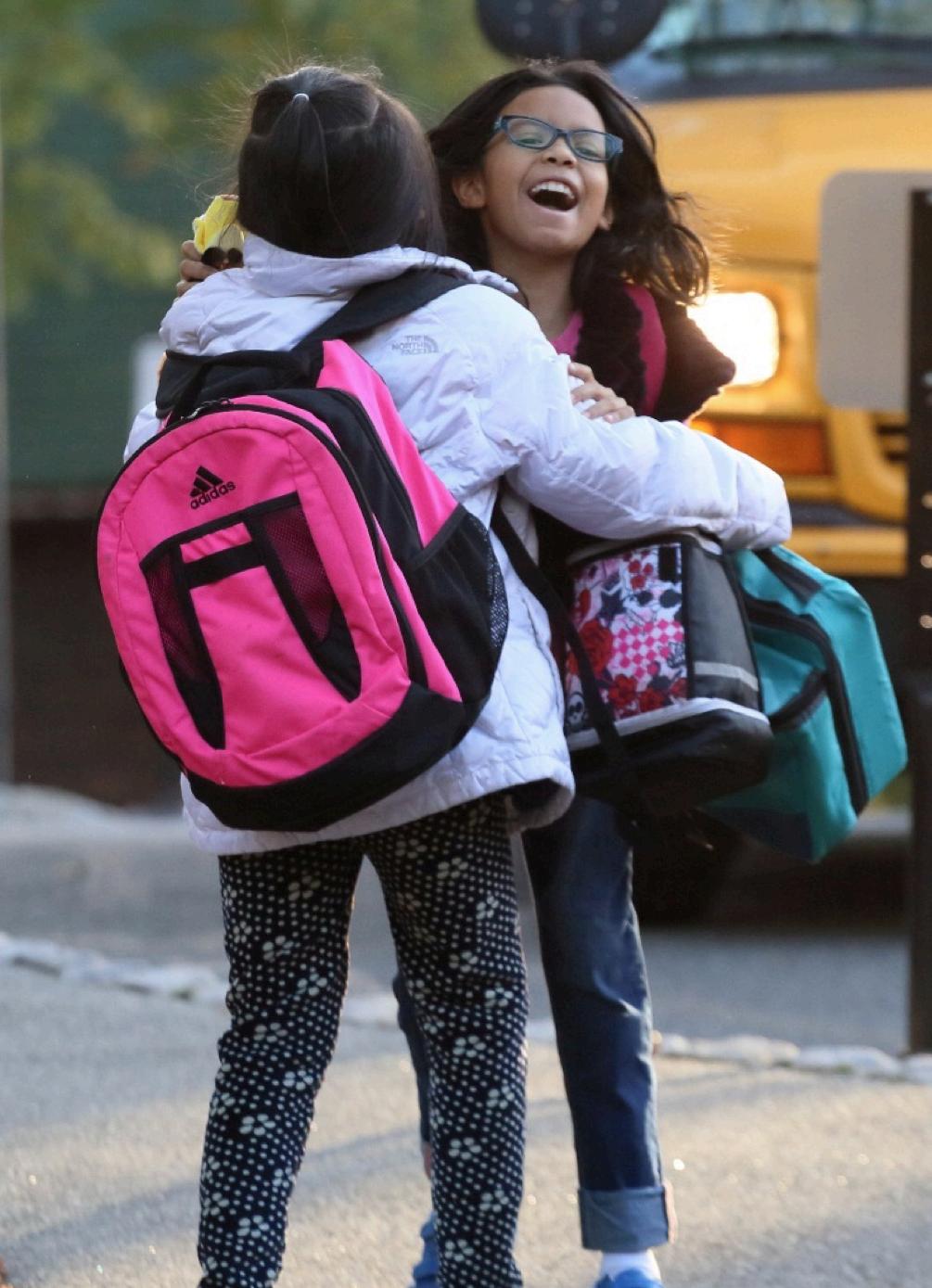
Study Skills: In Middle School, the Learning Specialist and Literacy Specialist work with students individually and in small groups within various classroom settings. They consult regularly with the classroom teachers to coordinate strategies that take into account students’ specific learning styles.
Students in the Middle School begin to take on more responsibility for their learning. Through support from their academic teachers and the Learning Specialist, students learn organization and time management skills that are reinforced daily, resulting in students who are more independent with homework. Students also learn various study strategies and test-taking techniques as they prepare for quizzes and tests or memorize lines for their class play.
Many families use school services beyond the school day. At Far Brook we offer fee-based programs that provide enrichment, variety, and opportunities for students from multiple grades to connect and interact.
Students can sign up for a variety of classes that are offered every day of the week. Some of our classes are also available on a drop-in basis so that families may periodically enroll when the need arises. Class offerings may include: Coding for Kids, Flag Football, Maker’s Space, Chef’s Club, Backyard Games, Scrapbooking, Pottery, and Homework Club.
